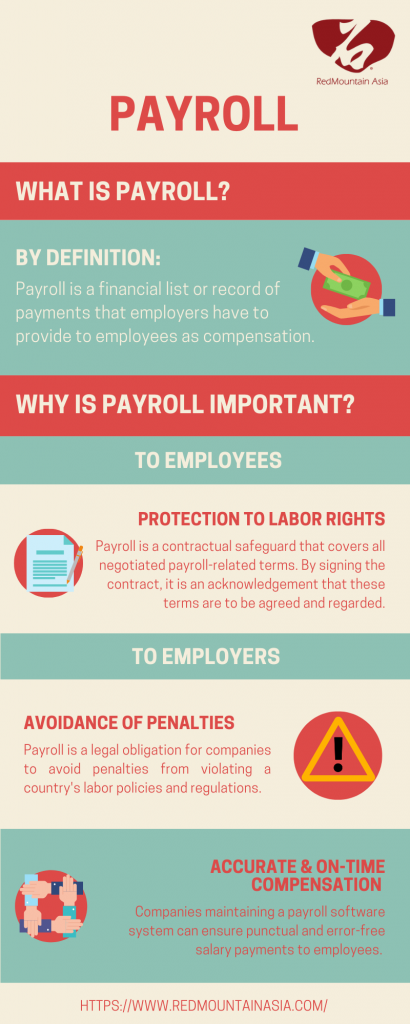When you hear the term ‘payroll’, what pops up in your head? “Paying salaries, keeping track of holidays, calculating compensations, etc.” you may say. To be precise, payroll is defined by a financial list or record of payments that employers have to provide to employees as compensation.
Nowadays, payroll system has become a key factor for businesses that want to expand in the global world. However, managing a payroll system is a crucial but redundant task as there are certain labor guidelines and regulations in different countries to follow. On top of legal reasons, a managed payroll system is also important to both employers and employees.

Why Is Payroll Important?
To employees, payroll is a protection to their labor rights. At the beginning of every new job, employees are asked to sign a contract that covers all the negotiated payroll terms, like salary, bonuses, commissions, awards, annual leaves, etc. By signing the contract, it is a safeguard to both the company and the employees in terms of compensation agreement.
To employers, payroll records are vital elements to the firm for financial reasons, and they are also shown as a contractual obligation to follow a country’s labor regulations. Take Hong Kong as an example, if the employers delay the compensation for just a week, their employees already have the right to file a complaint to related government bodies.
However, a more compelling reason for employers to comply with a sustainable and accurate payroll is employee morale! No employee would ever want to work for a non-promising company, right? Here comes payroll management: by adopting a transparent and automated payroll software system, employees are given easy access to their own payroll data. Not to mention, punctual compensation can be ensured along with reasonable chances of bonuses and rewards.
Thus, whether you are viewing from an employer or an employee’s perspective, payroll is still of utmost significance – Payroll is a lot more than just a monthly salary.


